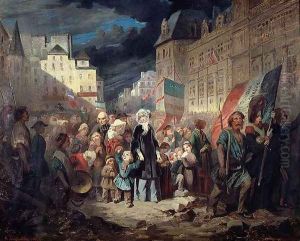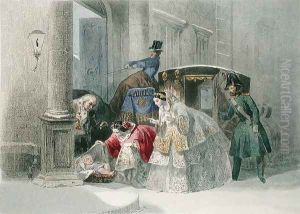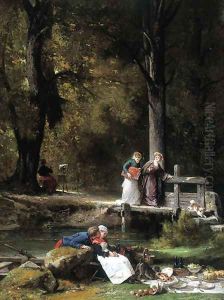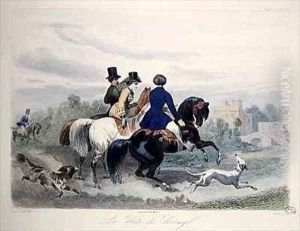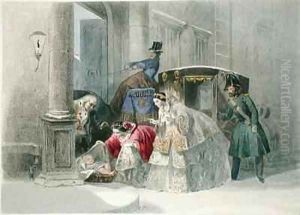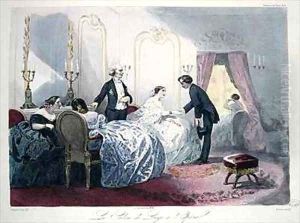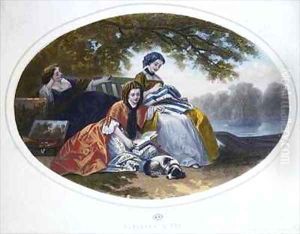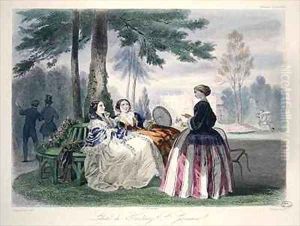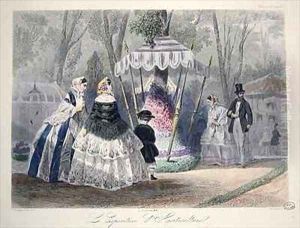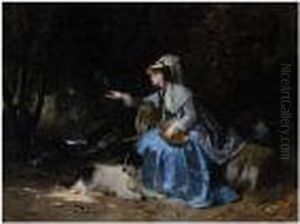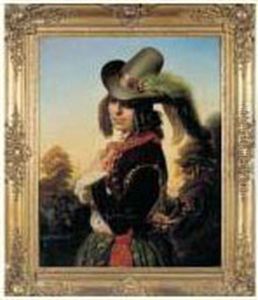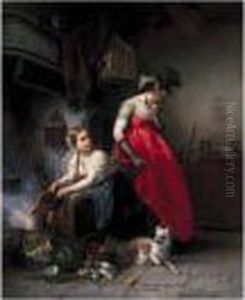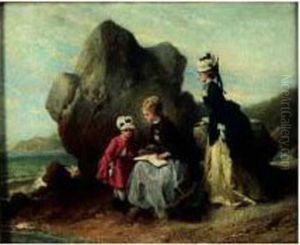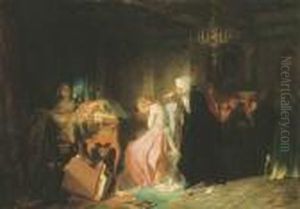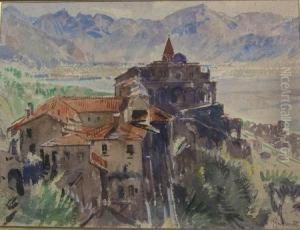Francois Claudius Compte-Calix Paintings
François Claudius Compte-Calix was a French painter and illustrator, born on August 16, 1813, in Lyon, France. He is known for his genre paintings, portraits, and historical scenes. Compte-Calix studied at the École des Beaux-Arts de Lyon before moving to Paris to further his education and career.
In Paris, he became a student of the famous painter Léon Cogniet, who was known for his historical and portrait paintings. Under Cogniet's guidance, Compte-Calix refined his technique and developed a keen sense for detail and composition. He exhibited his works at the Paris Salon, the official art exhibition of the Académie des Beaux-Arts in Paris, where he gained recognition and accolades for his work.
Compte-Calix's paintings often depicted scenes from French history, including the Renaissance and the Middle Ages, as well as everyday life in the 19th century. He had a talent for capturing the nuances of social interactions and the fashions of the time. His works are characterized by their vibrant color palette, delicate brushwork, and attention to detail.
Beyond painting, Compte-Calix also worked as an illustrator, contributing to various publications of the era. His illustrations were well received and added to his reputation as a versatile and skilled artist.
François Claudius Compte-Calix's career spanned several decades during which he contributed significantly to the French art scene. Despite the notable quality of his work, he remains less well-known than some of his contemporaries. He passed away on February 27, 1880, in Menton, leaving behind a body of work that continues to be appreciated by art historians and collectors today. His paintings can be found in museums and private collections, offering a glimpse into the rich cultural and historical tapestry of 19th-century France.

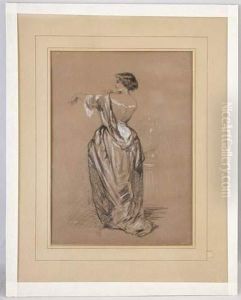

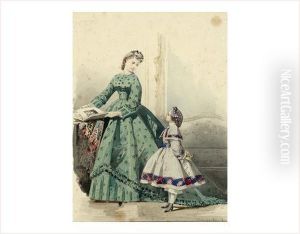

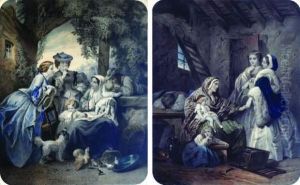
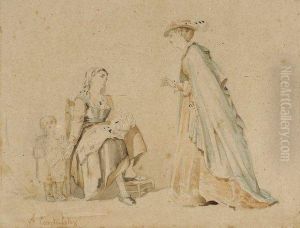

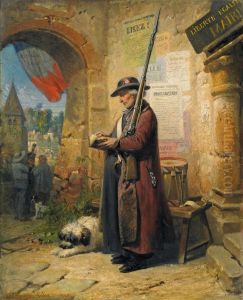




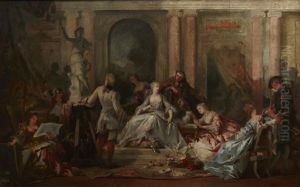
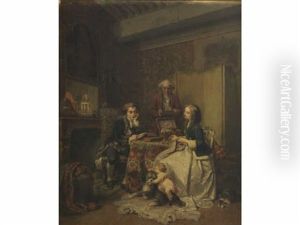


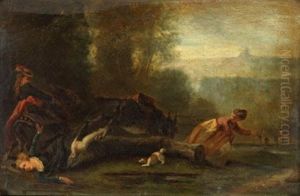




![[costume Designs]](https://www.niceartgallery.com/imgs/1242352/s/francois-claudius-comptecalix-costume-designs-6c2e2245.jpg)
